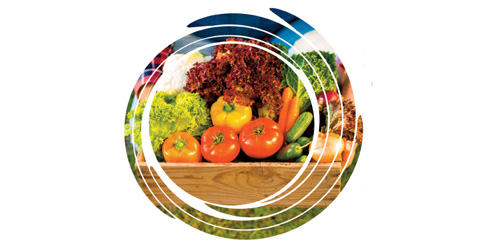Ongoing support from shoppers as well as local and regional retailers has made all the difference in keeping local produce a mainstay. “I am extremely grateful that many retailers are still supportive of family farms like ours,” shares Flaim.
Beaver believes local businesses willing and able to meet demand for local products will have greater success than “competitors that have not addressed these consumer needs.”
Organics: No Longer Just a Trend
Organic produce has made great strides in New Jersey, with some growers convinced a switch away from conventional crops will garner more market share. Flaim says his family business is answering the call: “We try to conform to new growing trends to stay relevant in the market, and have dedicated acreage to organics to fill this need.”
M. D’Ottavio Produce is another grower capitalizing on the movement. “We see demand increasing very quickly for organic and have joined up with several growers to help supply this very fast growing industry,” shares D’Ottavio.
Beaver has seen the demand for organic swell through the Department of Agriculture. “We’ve been directly involved in the growth of this industry, given that we do organic certification work for the majority of organic producers in the state, and provide guidance to growers considering transitioning some or all of their land to organic production.”
Working with Nature
Those growing in the Garden State are familiar with taking care of the environment and putting sustainable initiatives in place, from integrated pest management (IPM) programs and drip irrigation to protecting the soil and using recycled containers and packaging whenever possible.
Pest control
At R&R Flaim, the company works closely with Rutgers University’s IPM program and their county representative to stay “informed on the newest, most effective, least invasive, and safest methods to ensure responsibly grown produce,” Flaim says.
The fourth-generation grower has implemented measures to combat pests, disease, and environmental problems. “We use buffers, filter strips, fencing, trap cropping, and ‘IPM Prime’—a pesticide risk mitigation engine,” shares Flaim. Energy and water conservation are also top of mind, so the Flaims “participate in efforts to improve local watershed health.”



